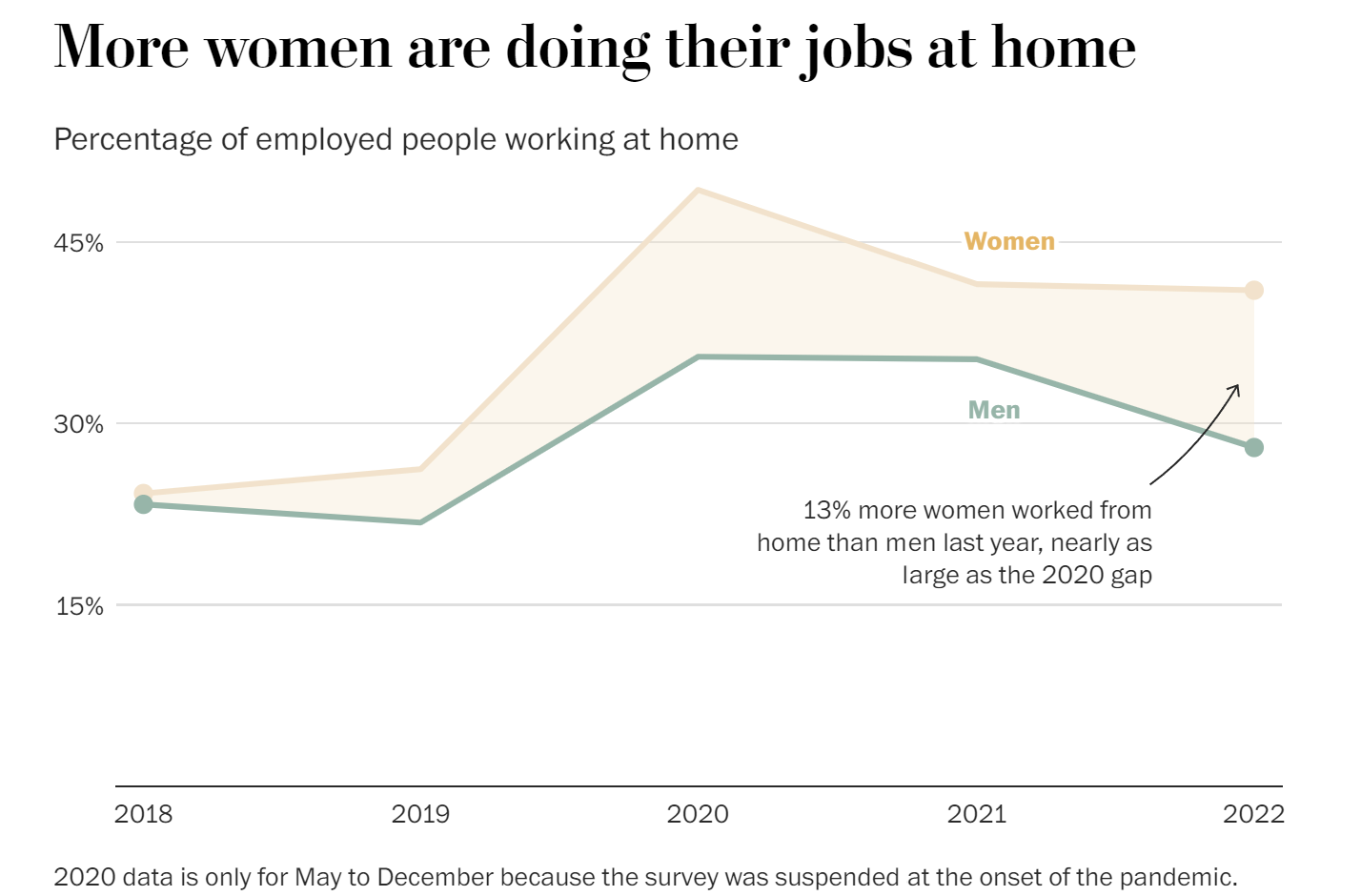In brief: The number of people in the US working from home has dropped since the pandemic but remains significantly higher than before the days of Covid-19. A recent survey shows that more than one-third of American workers are still doing their jobs from home, and many more men are returning to the office compared to women.

The American Time Use Survey (ATUS) report shows that in 2018 and 2019, just 24% of Americans worked from home on an average day. The start of the pandemic in 2020 saw that number almost double to 42%, and while it has fallen slightly since then, home workers still made up 34% of employees last year. With some people working at home and in the office on the same day, it was found that employees spent an average of 5.4 hours per day working at home in 2022.
Those who were college-educated, especially those with a bachelor's degree, were much more likely to find themselves working from home last year. More than half of this group (54%) avoided full-time office work in 2022.
One surprising element in the report is the discrepancy between the number of men and women working from home. Nearly half of all women were home workers in 2020, up from just over a quarter a year earlier, making them more likely to be away from the office than men. In 2022, 41% of women were working from home compared to 27% of men, marking a much smaller decline for the former.
Image courtesy of The Washington Post
The survey shows that women are more likely to prefer working from home, though the gender difference is also due to the type of positions more women occupy.
The survey also looked at roles men and women take on at home. Women were found to spend around twice the amount of time men did caring for children, and more time doing household activities like washing and cleaning. The only exception was yardwork, which was much more male-dominated.
Most employees do prefer to work from home, but it does mean that people, apart from those aged 20 to 24, are spending more time alone and socializing and communicating with others less. Moreover, they often devote leisure time to TV and electronic devices rather than engaging in physical exercise or other behaviors beneficial to their health, such as preparing healthy meals.
Many companies, even those who once promised that remote work was the new norm, are calling employees back into the office, and in most cases, people aren't happy about it.
Masthead credit: Creative Lab
https://www.techspot.com/news/99212-working-home-new-norm-especially-women.html
